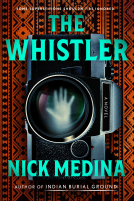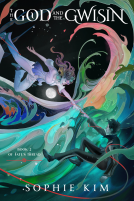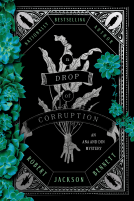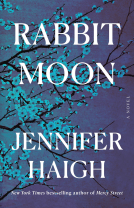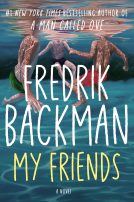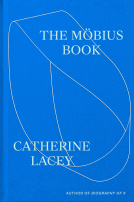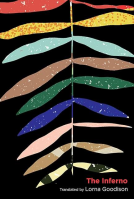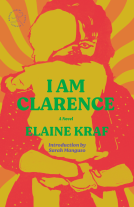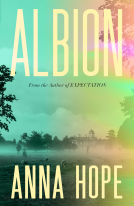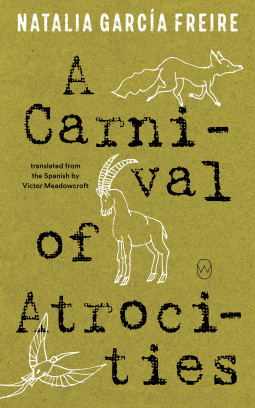
A Carnival of Atrocities
by Natalia García Freire
This title was previously available on NetGalley and is now archived.
Send NetGalley books directly to your Kindle or Kindle app
1
To read on a Kindle or Kindle app, please add kindle@netgalley.com as an approved email address to receive files in your Amazon account. Click here for step-by-step instructions.
2
Also find your Kindle email address within your Amazon account, and enter it here.
Pub Date Apr 01 2025 | Archive Date Apr 01 2025
Talking about this book? Use #ACarnivalofAtrocities #NetGalley. More hashtag tips!
Description
The residents of a desolate town nestled in the Ecuadorian Andes are forced to reckon with the legend of Mildred, a girl wronged by the town years ago
Cocuán, a desolate town nestled between the hot jungle and the frigid Andes, is about to slip away from memory. This is where Mildred was born, and where everything she had—her animals, her home, her lands—was taken from her after her mother’s death. Years later, a series of strange events, disappearances, and outbursts of collective delirium will force its residents to reckon with the legend of old Mildred. Once again, they will feel the shadow of death that has hung over the town ever since she was wronged. The voices of nine characters—Mildred, Ezequiel, Agustina, Manzi, Carmen, Víctor, Baltasar, Hermosina, and Filatelio—tell us of the past and present of that doomed place and Mildred's fate. Natalia García Freire’s vivid language blurs the lines between dreams and reality and transports the reader to the hypnotic Andean universe of Ecuador.Advance Praise
Praise for A Carnival of Atrocities
“What an event! Natalia García Freire conjures up an ancient forest and sets language and its roots alight, including the living and dead. Marvelous, dazzling, celebratory writing. I can’t say it enough: read it!” —MARÍA SÁNCHEZ, author of Land of Women
“The language in this novel weaves together miracles, curses, and deliriums. Natalia García Freire creates disturbing and beautiful books that remind one of the poetic cruelty of far-off mythologies.” —IRENE VALLEJO, author of the international bestseller Papyrus: The Invention of Books in the Ancient World
“This is the story of a town, Cocuán, told through its characters. A story with hints of fable, myth, madness, death, innocence, evil … It’s amazing, as always.” —ANDREA CARRASCO, ABC
“In A Carnival of Atrocities, the story of poor Mildred, banished, dispossessed, and ostracized, is preserved in Mother Earth, Pachamama, in Cocuán.” —INÉS GARCÍA, Libero Editorial
“In Natalia García Freire’s literary universe, everything that was destined to remain a secret, hidden away, has come to light: the wind, the birds, the forest. She writes from the ground level, somewhere between the ferocity of Flannery O’Connor and the sinister nature of Shirley Jackson—it will leave no one indifferent. Hers is a mad and disturbing universe.” —CRISTINA SÁNCHEZ ANDRADE, author of The Winterlings
“A beautiful and terrible book.” —JOSEP NADAL SUAU, El Cultural
Praise for This World Does Not Belong to Us
“Disquieting and visceral. … García Freire unearths a brilliant sense of the miraculous from the swarming and putrid subject matter. The result is beautifully macabre.” —Publishers Weekly, starred review
“One of the debut novels that most stood out this year in Latin America.” —New York Times
“A wronged, bitter young man welcomes his fate in Natalia García Freire’s novel This World Does Not Belong to Us. Lucas was just a child when his father sold him to another farmer as a laborer. Years later, Lucas returns, full of resentment and burning for revenge. … Visceral prose captures Lucas’s obsession with death, bugs, and other unpleasant aspects of life. … There is a strange, unconventional beauty to his morbid world—a beauty that helps him endure pain and humiliation and achieve an unnerving final calm. This World Does Not Belong to Us is a bleak exploration of how all ends in death and decay.” —Foreword Reviews
Marketing Plan
- Advance galleys and digital reader copies
- National TV, radio, print, and online review campaign
- Consumer-facing national advertising campaign on Shelf Awareness, Lithub, NPR, Foreword Reviews, Goodreads
- Book club discussion guide
- Bookstore co-op available
- Excerpt placement
- Social media campaign & Goodreads Giveaway
Available Editions
| EDITION | Other Format |
| ISBN | 9781642861518 |
| PRICE | $19.99 (USD) |
| PAGES | 154 |
Available on NetGalley
Featured Reviews
I love travelling through books and read voices I normally wouldn’t, and I feel like I got that feel with this book even if I maybe didn’t connect to the story, I can appreciate reading something completely different from what I usually read.
Set in the Ecuadorian Andes gave this a pretty unique feel to me, and one could tell there is a clear thought behind the book.
A Carnival of Atrocities by Natalia García Freire
Rating: 4/5
This book swept me into its haunting world in the Ecuadorian Andes, where the town of Cocuán pulses with myths, madness, and old wounds. Freire’s writing is mesmerizing, mixing earthy imagery with surreal, almost mythical tones as the story of Mildred—ostracized and wronged—unfolds. The voices of the nine narrators weave together a tale of eerie beauty and tragic weight, reminding me of the poetic intensity of Shirley Jackson or Gabriel García Márquez. It’s not a light read, but if you enjoy dark, atmospheric fiction where reality and folklore blur, this will stick with you long after you close the book.
It’s definitely one of those novels where the language and vibe steal the show over plot. If you’re okay with that, dive in—you won’t regret it!
I’m not sure I fully understood this book but I really enjoyed it. I’ve noticed for quite some time now that Asian and Latine books in translation are always under rated and I feel that is the case with this book as well. The imagery is really powerful. This is classified first as a fantasy book but while it is loaded with fantastic elements, it felt very much like a horror to me.
This story is told from the perspective of 9 different people from the town during its demise years after the town took Mildred away from her mother’s beloved home. At the end I felt like this was ultimately a story about feminine rage and I can’t get enough of that.
 Reviewer 1089524
Reviewer 1089524
I never really get the chance to read novels and books from Ecuador, so I was excited to receive this advance copy! It's a bit of a shorter book than I expected, and while I do wish we got a bit more time with each of the characters whose perspectives we landed in each chapter, I generally enjoyed the myth making that's created through this tale, albeit how tragic and cruel it can be. I'd recommend this book for those who find themselves interested in the synopsis--it can be quite the interesting read.
 Andrija F, Educator
Andrija F, Educator
I have somehow completely missed Natalia García Freire's first English translation, This World Does Not Belong to Us, which I shall rectify as soon as possible after reading this novel. I'm not sure exactly what happens in it, but I'm sure it reads like the offspring of Fernanda Melchor and Agustina Bazterrica (and there's even a character called Agustina). And that is as high as my praise can go, as both Melchor and Bazterrica have written some of my favourite novels of the last decade. So if you are ready for otherworldly, more-than-human, chthonic encounters that challenge the very foundations of common sense, then sit down and open this book. It's disgustingly pleasurable or pleasurably disgusting, binaries don't really apply here.
 Reviewer 1394760
Reviewer 1394760
A short and, generally, beautifully written book, however it requires the reader’s attention to connect the multiple POVs.
I have read little Ecuadorian literature, and I am glad to have read this one.
The author’s writing is poetic, and I enjoyed the myth-like elements in the story.
Solid 3 stars.
This was a short novel but still very good. I do hope to read something longer by this author soon. Very talented.
A heavy, gristly read, despite its short length. The prose is lyrical, often beautiful, but the content can be brutal. The unfortunate residents of a godforsaken town venture into the woods in search of a party of townsfolk who have gone missing. I liked how each chapter followed someone new, but I did find there were too many side characters and too little time to get to grips with who they were.
This short novel felt like a fever dream. It is a series of chapters from different people in the same Ecuadorian village. Each of them is at once insightful, symbolic, and sometimes brutally realistic. The writing is beautiful and grotesque all at once. I've never read anything quite like it before.
Set in the desolate, fictional town of Cocuán, A Carnival of Atrocities unravels like a haunting legend passed down through generations. After the death of her mother, Mildred loses everything—her home, her animals, and the life she once knew. But her story doesn’t end there. Whispers of her return, seeking revenge and death, grip the town in fear. Has she truly come back, or is this just another tale spun by a place steeped in mystery? You’ll have to read to find out.
Told through the perspectives of nine different characters, this novel might seem overwhelming at first, especially for those who usually shy away from multiple POVs. Yet, the author weaves them together seamlessly, never losing sight of the core story. Instead of feeling disjointed, these perspectives add depth, each revealing a new layer of Cocuán’s eerie history.
What makes this book so captivating is how it blurs the lines between reality and dream. The atmosphere is hypnotic, drawing you into a world where truth and illusion bleed into each other. Some characters naturally feel more fleshed out than others, and you might find yourself favoring certain narratives, but that only adds to the book’s complexity.
If you're looking for something dark, immersive, and emotionally charged—especially a story where reality feels like a shifting mirage—this one is worth picking up.
Many thanks to NetGalley and the publisher for the ARC!
 Noelle J, Reviewer
Noelle J, Reviewer
I was not clear going into this book that it would be quite so disturbing. However, in spite of that, I found the book to be well- and beautifully written. I love the connection to nature and the supernatural. It is definitely unlike anything I have read previously.
Rating: ⭐⭐⭐⭐
Genre: Literary Fiction + Magical Realism
This is the story of a desolate, fictitious town called Cocuán. After her mother’s death, Mildred loses everything she cherished in this town: her home, animals, and life. Her story becomes a legend that will haunt this town and its residents. Has Mildred returned to bring revenge and death? To know this, you have to explore the book yourself.
The story is told from the perspective of nine characters! Yes, at first I thought this number was a big one for such a short book, but honestly, I didn’t feel it was a problematic thing despite disliking multiple POVs in general. Somehow the author was successful in implementing all these perspectives without creating lots of distractions from the main theme of the story.
The beautiful thing about this book is that everything is blurred between reality and dream. It becomes difficult to know what is true and what is not. This quality made the atmosphere of the story very hypnotic and deeply immersive at the same time.
With nine characters involved, you can’t avoid feeling that some characters have better character growth than others, or you might prefer some character’s narratives more than others. So comparison and favoritism are something you cannot avoid.
Give this book a try if you're in the mood for something a little dark and emotional. If you enjoy stories in which the line between reality and imagination is blurred, this one is definitely one to check out.
Many thanks to NetGalley and the publisher for providing me with the ARC of this book.
 Reviewer 618436
Reviewer 618436
A sort of mangled fever dream that is at once evocative/ immersive and quite confusing. We follow the ugliness of a dying town as it enacts a violent end both itself and the inhabitants. The writing and language is beautiful, poetic and surreal.
We start this book with Mildred, whose mother has died and whose father has disappeared, and whose entire existence is taken away as she screams and curses the townspeople. Each chapter is told by a different character and little by little we discover the horrors that the curse may have inflicted on them.
This is such an strange and fantastical story. I honestly didn't know where reality ended and fantasy began and it packs so much in 80-some pages.
 Jacqueline J, Reviewer
Jacqueline J, Reviewer
Cocuán, a small town in Ecuador is doomed by a curse. Upon the death of Mildred Capa’s mother and the subsequent abandonment by her father, Mildred was intent on maintaining and working the farm. However, the parish priest and townspeople had other ideas, not to help sick Mildred, but to benefit themselves. They killed her beloved animals, set the house on fire, and sent Mildred to live at the monastery enduring the abuse of Father Santamaría.
After Mildred’s death, we learn from the perspective of those who wronged her and paid a price. We also discover the evil and repulsive character of the residents of Cocuán.
Though A Carnival of Atrocities is quick read, it is not an easy read. I had problems distinguishing the characters’ delusions from reality. However, the story is engaging, and the characters are well-developed. What I enjoyed the most are the gorgeous and vivid translated prose.
Yes, A Carnival of Atrocities will appeal to a niche audience, but I recommend this novel to those who enjoy fine literature.
(This review will be posted on UnderratedReads on April 1, 2025
A lyrical and haunting novel, a Carnival of Atrocities explores themes of society, revenge and weaves an intricate story. Though sadly, this wasn't for me in may ways, I truly believe this will be a popular novel and hope to give it another read at a later date, as it is a short and sweet novel.
A Carnival of Atrocities is a story of perspectives, it's visceral, evocative, and slightly unhinged in the best way possible.
The shifting perspective of the nine different townsfolk is a unique and exciting way to read a story. In ways, it provides an unreliable narrator aspect with each viewpoint diversifying the actual story. Each characters response to the impending doom that has been layed upon the town speaks deeply to what it is to be human and how we prosper or break in tough times. The writing is compulsive and unsettling, feeling like a well crafted horror at times. The Author masterfully builds on a ever present sense of doom that swells till the very end.
Readers looking for a fresh and haunting take in the fantasy/horror space will surely enjoy this offering.
A Carnival of Atrocities by Natalia García Freire is a haunting exploration of memory, loss, and legend, set in the remote village of Cocuán, nestled between the jungle and the cold Andean mountains. The book is a dark, surreal journey into the minds of its inhabitants, blending the past and present of a town slowly fading from existence.
The central figure, Mildred, was born in Cocuán, where she was stripped of everything after her mother’s death—her animals, house, and land. Years later, strange occurrences, episodes of madness, and delusions begin to unravel, drawing the villagers back to the legend of Mildred, a figure connected to the shadow of death that haunts their lives. The story unfolds from the perspectives of nine different characters, each adding to the complex, eerie tale that spans generations.
Freire’s storytelling is intoxicating, using overflowing language that blurs the lines between dreams and reality, fully immersing the reader in the mystical Andean landscape. A Carnival of Atrocities is a choral narrative that transcends ordinary storytelling, making the village of Cocuán come alive with its mysterious and unsettling atmosphere. The book challenges the boundaries of conventional reality and invites readers into a world where myth and history intertwine.
With its profound psychological depth and evocative setting, A Carnival of Atrocities stands out as a unique work of contemporary Latin American literature. Freire’s portrayal of the Andean universe is both hypnotic and captivating, drawing readers into a world where the supernatural feels real, and the past never truly fades.
For those who appreciate experimental, atmospheric storytelling with a deep connection to cultural mythologies, A Carnival of Atrocities offers a mesmerizing and unforgettable experience.
Read more at The Secret Book Review.
 Harish P, Reviewer
Harish P, Reviewer
'A Carnival of Atrocities' is a work of hypnotic poetic beauty, though very sharp and violent, traversing a fragile line between myth and reality. It evokes the style of folklores and fables and explores the corrosive nature of collective guilt, which can swallow a society whole. The desolation and corruption of Cocuán and the mass delirium the characters suffer also serve as a metaphor about the systemic injustices meted out to the weaker sections of society and how they have the potential to collectively strike back, eventually decimating that rotten core.
Cocuán, a lost and forgotten village between the jungle and the cold of the Andean mountains, is on the verge of disappearing from memory. Mildred was born there, and there she was also stripped of her animals, her home, and her land after her mother's death. Years later, a series of strange events, episodes of madness and delusions, will make its inhabitants remember the legend of old Mildred and once again feel the shadow of death that has haunted the town ever since. The voices of nine characters tell us about the past and present of a doomed place and the miracle of
Mother God on Earth.
Reading this novel will transform readers into inhabitants of Cocuán, sweeping them away by an overflowing language that blurs the lines between dreams and reality. In this ensemble work, Natalia García Freire portrays the hypnotic Andean universe, a privileged setting for her imagination, unique in contemporary Latin American literature.
 Damien E, Reviewer
Damien E, Reviewer
Sometimes, horror books have "flawed" or "unhinged" characters that make you think "this person is only slightly left of normal." THIS book introduces you to characters that are deliciously fucked-up. Certain character's perspectives (*cough* Ezequiel *cough*) were so unflinchingly amoral that I couldn't look away - what were these people going to do next? In a way, none of these characters had done anything to deserve what happened to them. Which is the same as saying they did deserve it.
A short read with devastating impact. I look forward to seeing more work by this author.
Thank you to NetGalley for an arc in exchange for an honest review.
Full disclosure, I ended up DNFing this around 35%. I found the writing style very dry and matter-of-fact which just didn’t work for me. There is a lot of gore and dramatic events going on, but the writing made it difficult for me to stay engaged so I’m putting this one down. Admittedly, this style seems to be pretty common in litfic and it doesn’t always bother me. However, since the description specifically mentioned the “vivid language” I was expecting something a bit more engaging, and not just descriptive.
I know this work is translated, so I’m not sure if this was a translation choice to reflect the original writing style, or simply the translator’s style.
 Reviewer 499835
Reviewer 499835
This was too soft for me. Too full of whispers. I needed more structure to fully feel what I wanted to feel, more actual happenings and less vagueness. A very good book that I wanted more from.
 Marcia P, Reviewer
Marcia P, Reviewer
When Mildred’s young life in a tiny Ecuadorian Andes town is upended by the death of her mother, the townspeople in Cocuan forcibly remove her from her home and bring her to a monastery. So begins the reader’s journey to the absurd in a poetically written short tale of retribution bound to a magical fairy tale like view of the struggle to live and coexist in a setting fraught with spirits and prayer.
There are many POVs which unfold in what turned out to be a complex adventure that was difficult to plow through and even more difficult for me to interpret. Has Mildred returned to punish those that hurt her? Does the Church represent a source of salvation or one of lost souls? Has the author introduced animals with greater humanity than the actual humans? So much interpretation is needed to decide what the author is trying to say.
Two little stars for a book with which I just did not connect despite its lovely language. My thanks to NetGalley and World Press for a prepublication copy in exchange for my review. It will be published on April 1, 2025 and fans of this author and of symbolic tales of magical realism will want to read it.
This book is a wild ride from the start! If you love LatinAmerican dark Litfic, I’m sure you will like this one!! Loved the creepy small town called Cocuán by the jungles of Ecuador. It’s told from the perspective of nine characters so this isn’t a book you want to rush through. I did take notes on them and that made it so much easier to keep track of who is who. It’s worth it. The prose is beautiful and really sucks you in despite some characters being unlikeable.
Unfortunately this didn’t work for me and I DNFd 35% in. It sounded like an interesting story and I liked the first chapter but the writing style isn’t my cup of tea, with too much telling over showing
 Shiri S, Reviewer
Shiri S, Reviewer
An internationally beautiful book about horrifying things. Natalia Garcia Freire has captured the essences of sin, horror, cruelty, and the most loathsome aspects of the humanity with such poetic language and love for what we can, and might, be were we to take the time to think on what we do rather than what was done to us, to look at what we do to the world rather than what we can get from it, to consider the love with which others treat us rather than what we can take from them at no cost to ourselves, that world might half as deserving of the gift she has given us.
 D K, Reviewer
D K, Reviewer
Thank you to Netgalley and Word Editions for this arc.
Now, again I need to preface this review with the information that I read this book ages ago and then life took over and now I need to come back and review these books finally.
I also have to say I was so busy that it feels like it’s been years since the beginning of the year.
Anyway, this book was about a specific girl and the town in which she inhabited. It was similar to another novel I read last year which also had some magical elements but this one was more hazy in nature.
This novel follows multiple characters conveying the story of the town and also the girl.
Personally, while I think I did enjoy it, I don’t think I was in the mood for it at the time. It was a bit too disjointed at the time. However, I do recommend it for people who are into those mystical types of books.
Definitely out of my comfort zone.
Readers who liked this book also liked:
Kelly and Kristina Mancaruso
General Fiction (Adult), Mystery & Thrillers, Nonfiction (Adult)
